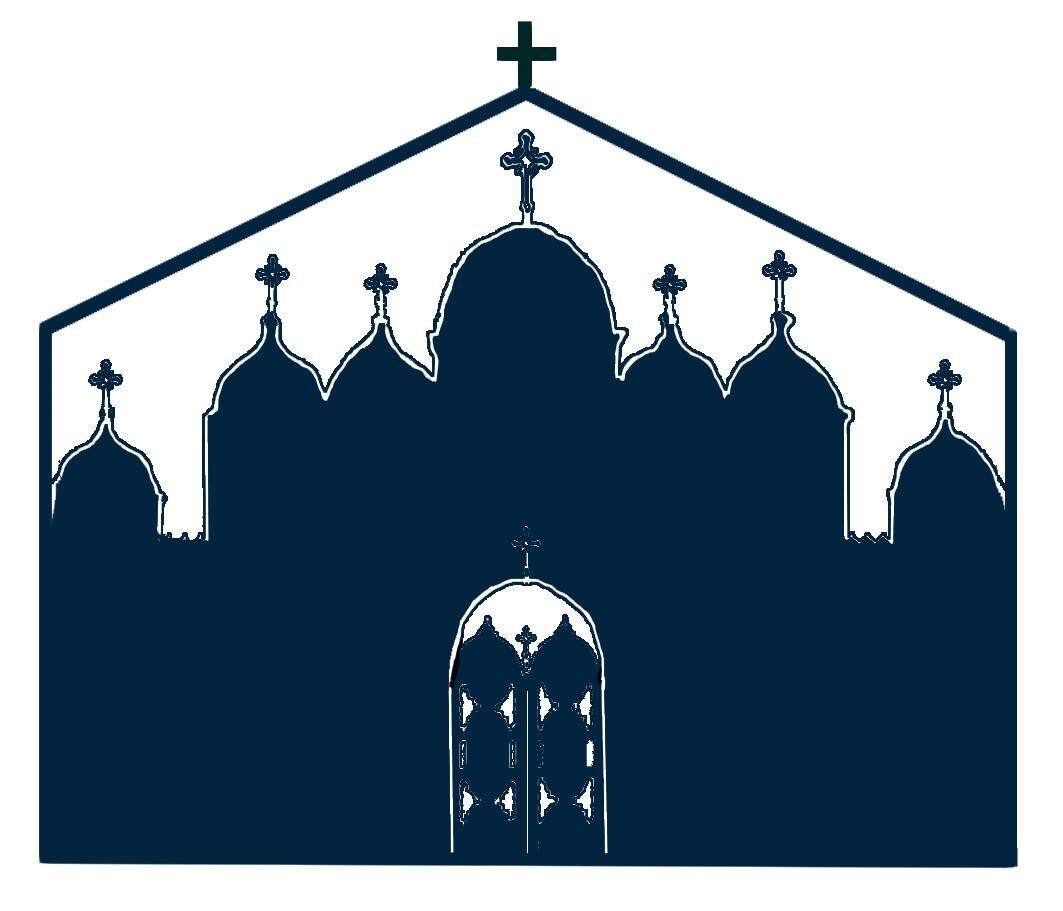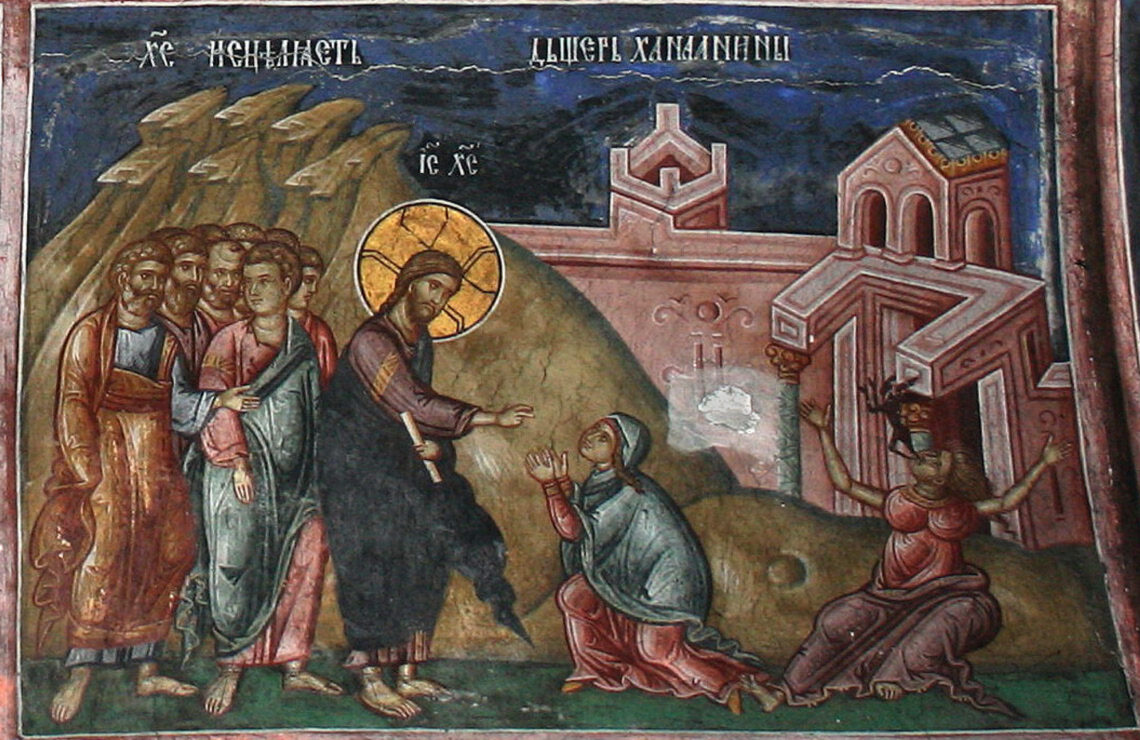Matthew 15:21-28 Osaka Church
In the name of the Father and the Son and the Holy Spirit
The side of Jesus seen in today’s gospel seems a bit harsh.
The story takes place on the road to Tyre and Sidon, cities of the Gentile Canaanites. Then a Canaanite woman crossed the border and came to Jesus, crying out, “Lord, son of David, have mercy on me! My daughter is possessed by a demon and is suffering.” She clung to the Lord and never left. But Jesus ignored it. When the disciples asked, “Please do her a favor and drive her away,” he replied, “I am working for the people of Israel, not for the Gentiles.” The woman continued to pray as if she didn’t hear him. Then Jesus said something even more harsh. He said, “It’s not good to take the children’s bread and throw it to the dogs.” The children are the people of Israel; the dogs are the Gentiles. This kind of sarcastic and roundabout reproach hurts people even more than outright words. He is quite severe. But the woman is not discouraged. She, on the other hand, does not give up, but responds to Jesus’s hurtful comments with the words “That’s true, but even dogs will eat the crumbs that fall from their master’s table.”
Jesus was impressed. Or, more accurately, he pretended to take off his hat to show his disciples her unflinching faith no matter what was said to her, as an example for them to follow.
He said, “Woman, great is your faith! Let it be done for you as you wish.” At that time, her daughter was healed.
This action was one of desperation as she came across her borders to Jesus, a member of the Jewish people who despised them as Gentiles. Gentiles must have had their own pride. But at this time she had no pride, she was not hurt to be called a dog. Moreover, Gentiles had a deep sense of inferiority because they had been exposed to the scorn of the Jews, who boasted of themselves as the “chosen people.” However, at this time, she did not have such a complex.
That’s why she didn’t become angry or fall silent in frustration at Jesus’ harsh words to her. She had no interest in her people or herself. These feelings disappeared. She was only interested in getting her daughter cured.
She begged Jesus saying “have mercy on me” and “help me.” She doesn’t say “my daughter,” but “me.” She is one with her sick daughter. If her daughter is suffering, she is suffering too. If her daughter doesn’t have anything to eat, she chokes on her food too. When her daughter cries out in pain, her heart is torn apart by her pain. When her daughter writhes with fever, she writhes too. If her daughter despairs of her hopeless future, it breaks her heart. She is one with her daughter. So she said, “Have mercy on me…”
At this moment, she is the epitome of “selfless love.” This selfless love allowed her to break through the hard shell that a person can create around themselves to protect against the outside world, and to go beyond the “border,” turning to Jesus. She was supremely free before her Lord. She was not held back by anything, and she was able to flexibly respond to the Lord’s harsh words.
So, I have a question for you all,
Don’t we know another person who became selfless out of love, broke out of his own shell, and crossed boundaries to be with us. He became one with us to share our suffering. And in order to give us freedom, He calls to us to come out of our shell. In order to elicit from us a response to that call, God sometimes challenges us as He did her.
Can we see the boundaries that we need to cross? From the other side of the border, Christ, who is God but has crossed the border and became a human, is calling out to us…

